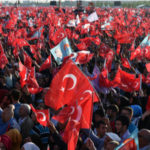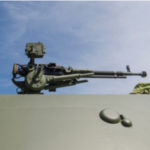As things accompanying the epidemic are developing, we can note a few interesting phenomena:
[1] borders are useful after all whereas the mass movement of people may be deleterious;
[2] virtue signalling has long gone beyond being ridiculous;
[3] the international solidarity is wishful thinking;
[4] Beijing and Moscow are far closer to Italy – a European Union member-state in need – than Brussels, Paris, Berlin or for that matter Washington.
[1] Borders are useful. Up to now the principle of the free movement of people (to be precise: labour and customers) has been enshrined in all Western states and regarded as unassailable. Whoever had second thoughts about it was ridiculed mercilessly and touted as inhumane, backward and what not. Nowadays all European governments have decided to isolate their countries from the outside world, including their EU member-state neighbours, and they did not need approval from Brussels. Fear of the DNA double helix soaring here and there made conceited politicians and self-assured citizens bow their knees to reality. They have all at the long last recognized that reality is something that refuses to satisfy our wishes.
[2] The other value enshrined in the Western world was its ethics of being race blind. Lo and behold fear of death has shown that people are race conscious, xenophobic and tend to cherish in-group loyalty rather than the global fraternity of all human beings. In Italy and the United States people naturally have begun to behave in a way suggestive of their conscious avoidance of the Chinese co-citizens or visitors. A quite natural behaviour when you consider that the epidemic started in and spread from China. This, however, was like the gauntlet thrown down to the politicians and social activists who have made a point of virtue signalling. Coronavirus prompts ‘hysterical, shameful’ Sinophobia in Italy (Al Jazeera); As the coronavirus spreads across the globe, so too does racism (The Atlantic); Coronavirus: Spike in reports of ‘racist’ abuse of Chinese people in Italy (The Local). These are but a few titles. For them it is not the epidemic that poses a problem, it is racisms that is rearing its ugly head. Only when it comes to acid tests can we see reality – something that refuses to bow to our wishes – of inter-human relations. People are in-group oriented (why shouldn’t they be, after all?) and xenophobic. They are hard-wired for that. Naturally, they are concerned first and foremost about their families and then about their extended families (even though they may not admit it consciously or in an attempt to avoid official ostracism) and not about the whole world, about nations in neighbouring countries, let alone about communities located in the other parts of the globe. This provides fertile ground for the few who want to tout themselves as friends of humanity and feel they are operating on moral high ground, which is a shot of dopamine as good as any other: Italian Mayor Urges Citizens to ‘Hug a Chinese’ to Fight Racism; Italian virologist says political correctness doomed his country’s coronavirus response; and On February 1st Florence, Italy, Celebrated “Hug a Chinese” Day.
You still don’t know why the death toll in Italy has surpassed that in Wuhan?

















